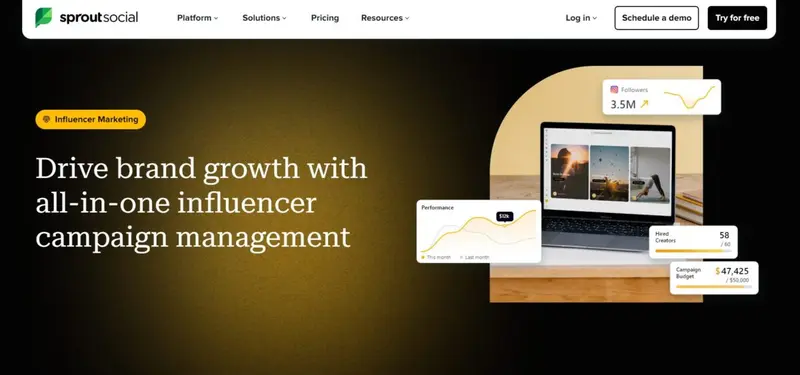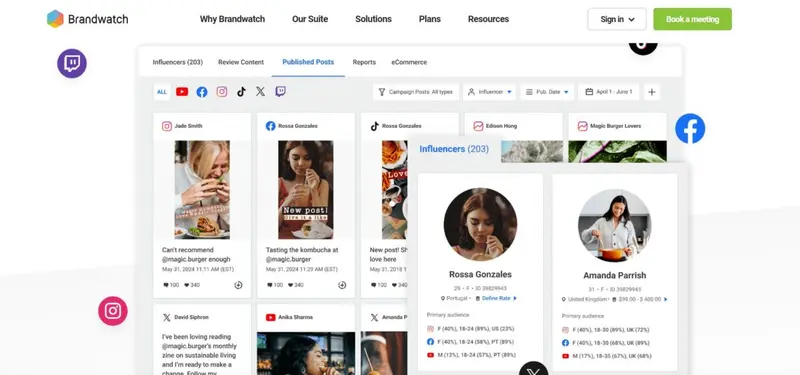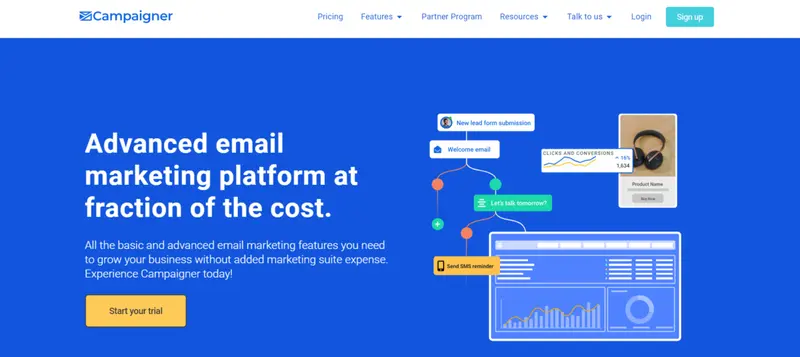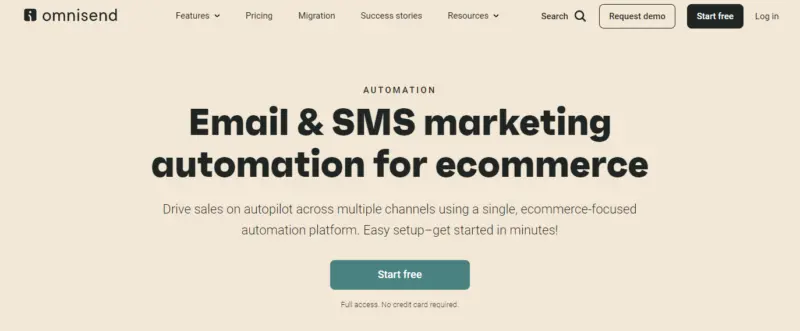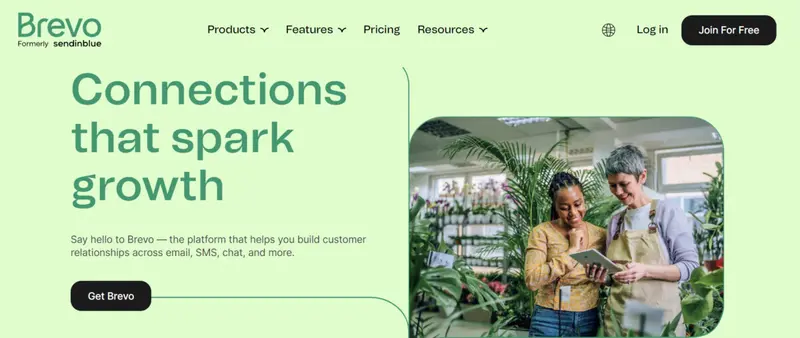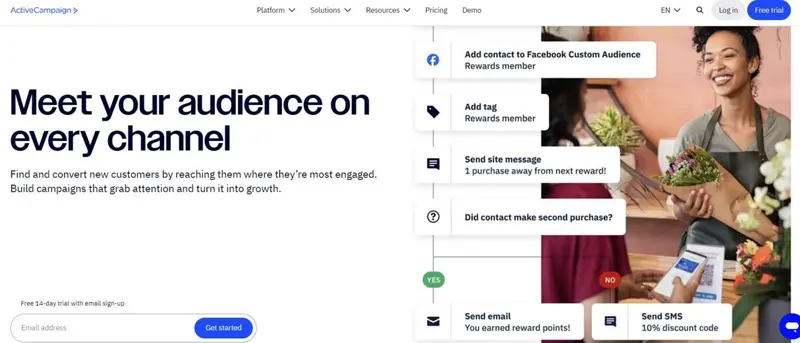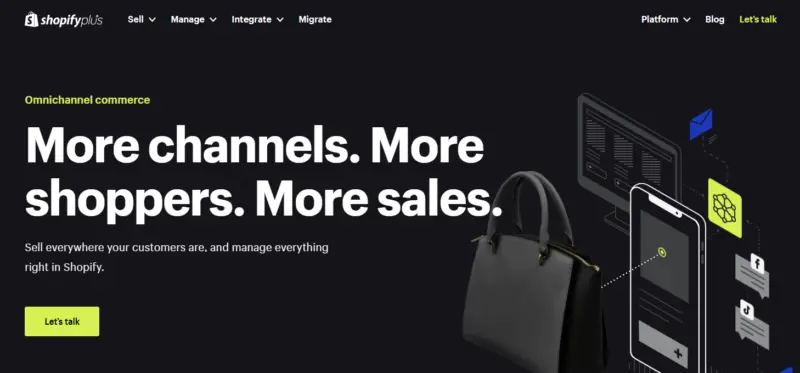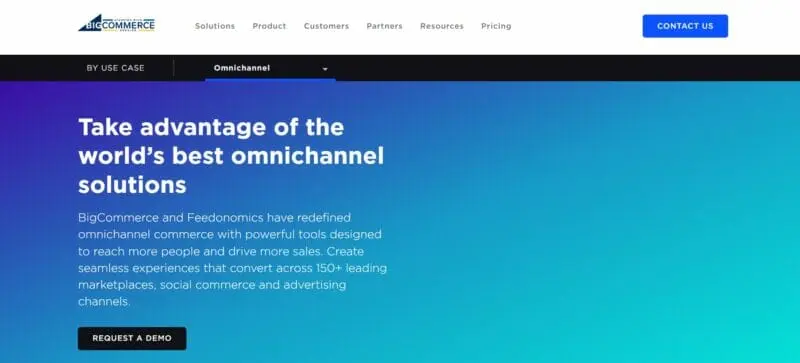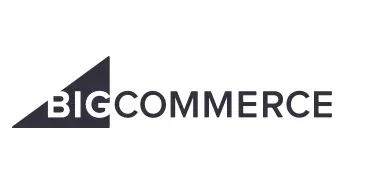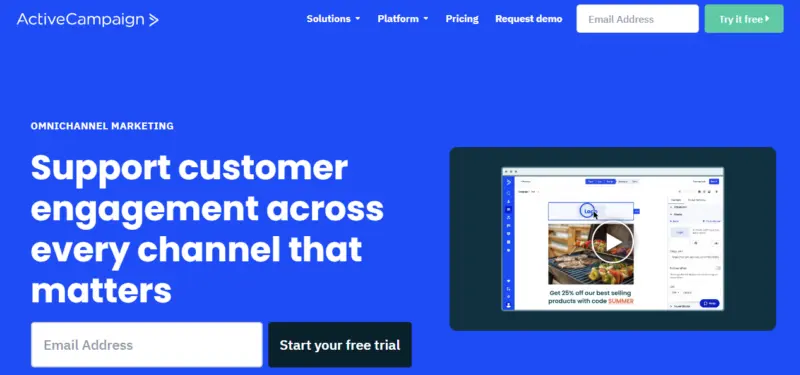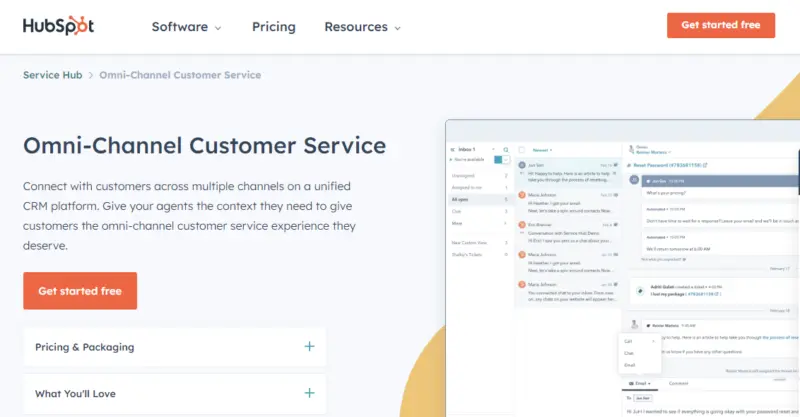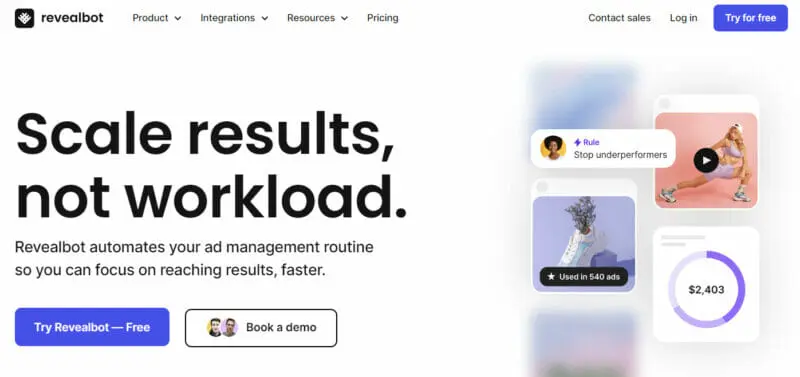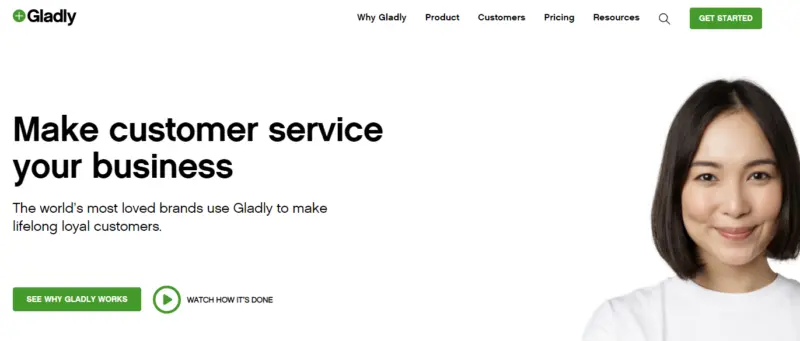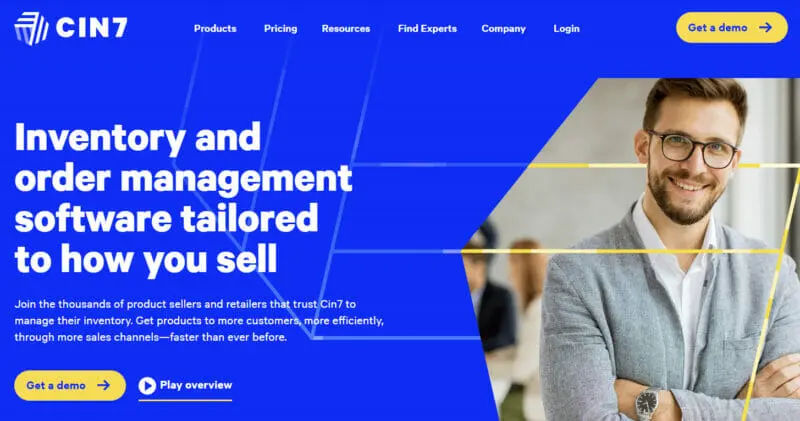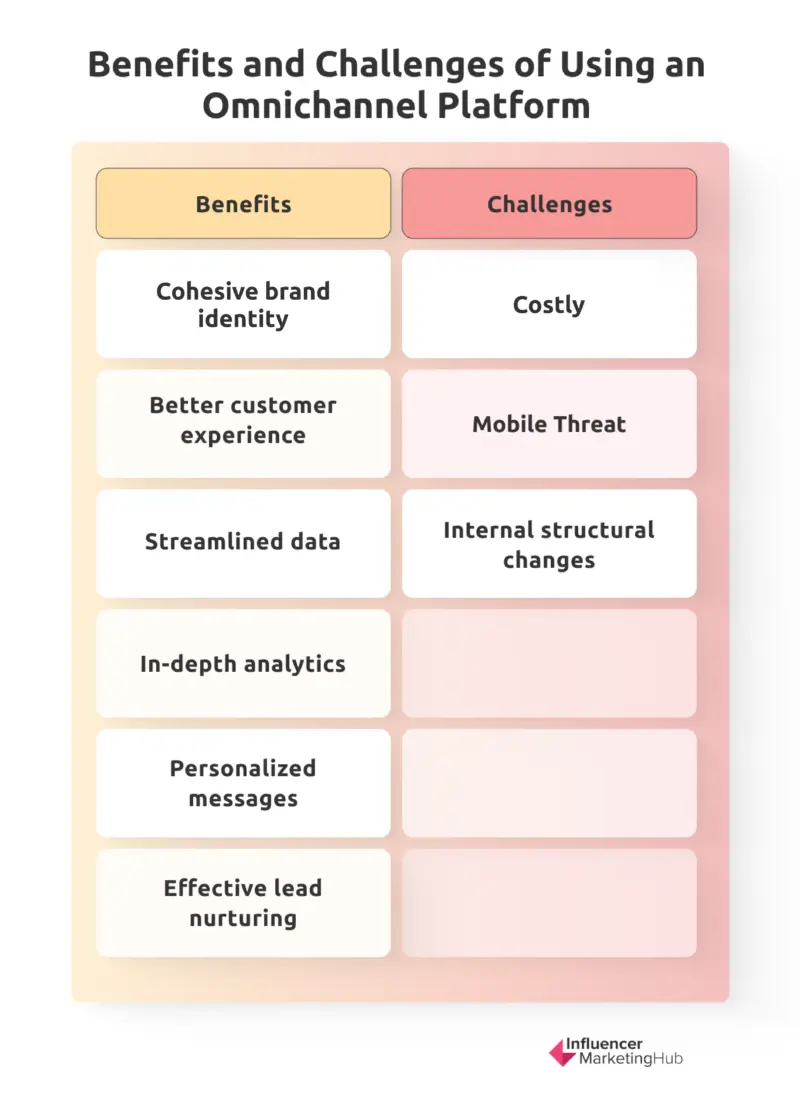The pace of technological advancement is increasing exponentially—and it’s a double-edged sword for marketers. One major breakthrough is an improvement in the timing and targeting of communications. However, they're being swamped by complexity, with out-of-the-box tech setups, segmented data, complicated analytics, a burgeoning list of channels, and competing definitions of core marketing terms.
"Omnichannel" is a prime example of a digital marketing term whose meaning has been muddled by ambiguity. Many people believe that it simply entails using multiple channels to promote to a specific audience, but that's only the bare minimum of what omnichannel marketing can provide.
Let's explore what omnichannel marketing is, how omnichannel marketing platforms can change the game, the pros and cons of adopting an omnichannel marketing platform, and the top omnichannel marketing software platforms for the year ahead.
What are the Best Omnichannel Marketing Software Platforms You Should Consider?
eCommerce platforms, enterprise resource planning systems, retail management systems, and marketing software can and should be integrated with an omnichannel software platform. Even though the settings for integration can be different depending on the platform and the user, the goal is to connect all important sales channels.
Sprout Social is a top-tier social media management platform widely recognized for its powerful suite of tools and its ability to enhance digital marketing strategies. Trusted by major clients such as Canva, Atlassian, HP, UNICEF, and GlassDoor, Sprout Social has earned accolades for its robust set of features that simplify social media management, boost brand visibility, and accelerate sales growth. Sprout Social’s core feature, social media management, enables you to seamlessly manage your social media schedules, inboxes, mentions, and analytics across platforms like Instagram, Twitter, Facebook, Pinterest, YouTube, LinkedIn, and more. Sprout Social social media management Sprout Social offers a centralized platform for scheduling, drafting, and queuing posts, while also tracking mentions and managing messages. This keeps your brand consistently active across all major social media channels. Its all-in-one approach streamlines content distribution and engagement, ensuring a unified and cohesive omnichannel brand presence. Sprout Social scheduling Intelligence gathering is another critical feature of Sprout Social, allowing businesses to monitor conversations and trends across multiple channels. With social listening tools, users can set up views to track keywords, hashtags, and topics on platforms like Twitter, Instagram, YouTube, and Reddit. This real-time monitoring provides invaluable insights into audience sentiment and industry trends, enabling you to make informed decisions and adjust your strategies based on current data. The platform’s robust reporting capabilities further enhance its intelligence-gathering prowess, offering detailed analytics on post performance, audience growth, and engagement metrics. Sprout Social real-time monitoring Sprout Social also excels in driving sales by integrating CRM tools that track conversation history, contact information, and customer interactions. This integration allows multiple team members to collaborate and ensure all customer engagements are consistent and informed. The platform’s analytics tools provide insights into the effectiveness of social and digital campaigns, helping businesses identify successful strategies and areas for improvement. By leveraging these insights, businesses can optimize their marketing efforts to drive conversions and increase sales. Platform analytics tool Plaid, a San Francisco-based company working with fintech firms, Fortune 500 brands, and large banks, leveraged Sprout Social to grow its LinkedIn audience by 60% in one year. Facing challenges in educating diverse audiences about its services and data security, Plaid turned to Sprout Social for comprehensive social media management. Sprout’s LinkedIn tools enabled Plaid to increase its followers from 70,000 to over 131,000 and achieve a 73% year-over-year increase in engagement rate per impression. Plaid case study results Matthew McConnell, Plaid’s Social Media Lead, stated, “Sprout’s LinkedIn management tools are crucial. They make it easy to share posts, engage with followers, and track content performance.” Sprout’s listening tools allowed McConnell to analyze sentiment and uncover trends while tagging features provided precise content categorization. “Tagging in Sprout helps us know which content performs best. If something isn’t working, we can recalibrate our strategy,“ McConnell explained. The integration with LinkedIn saved McConnell at least 20 hours per month, allowing him to focus on growing Plaid’s community and educating them about the company’s mission. “Sprout’s tools save me valuable time, making it simple to manage social platforms,” McConnell added. Brandwatch is a powerful platform designed to enhance your omnichannel marketing efforts. It offers an extensive suite of tools to conduct deep research, monitor your brand, and create winning content. With Brandwatch, you gain access to the world’s largest archives of consumer data and leverage top-notch generative AI tools to discover trends. Trusted by thousands of the world’s largest brands, including Nestle, Carlsberg, Toyota, and Unilever, among others, Brandwatch empowers organizations to understand their customers better, anticipate market shifts, and make data-driven decisions swiftly. Brandwatch’s omnichannel capabilities revolve around several key features. First, its social media monitoring tools allow you to keep track of conversations about your brand, products, and competitors across a vast array of online sources. Brandwatch omnichannel capabilities Social media monitoring is supplemented with analytics. The platform’s social analytics provides you with cross-channel insights. The intuitive dashboard allows you to store cross-network metrics and KPIs to see how your omnichannel marketing efforts are paying off. As they say so themselves, the dashboard can display data from every marketing channel at your disposal. Social media monitoring By leveraging AI-powered searches, you can quickly find relevant data and analyze what consumers are saying in real time. This enables you to stay on top of trends, measure your brand’s share of voice, and respond promptly to emerging issues, ensuring a cohesive and timely marketing strategy across all social media platforms. AI-powered search In addition to social media monitoring, Brandwatch excels in influencer marketing. The platform’s influencer discovery tool tracks over 30 million global creators, making it easy to find the right influencers for your brand. You can filter influencers by interests, brand affinities, prior collaborations, and credibility, ensuring influencer partnerships are well-aligned with your brand values and marketing goals. Influencer partnerships Brandwatch also simplifies influencer management by storing contact details, payment information, contracts, and correspondence in one place, streamlining the entire influencer marketing process. This centralized approach ensures your influencer campaigns are coordinated and effective, enhancing your brand’s reach and engagement across multiple channels. Influencer management Brandwatch also excels in data segmentation, allowing you to break down conversations by sentiment, emotion, and demographics. This capability is crucial for creating highly targeted campaigns. You can tailor your messaging to resonate with specific audience segments on different platforms, ensuring your marketing efforts are personalized and impactful whether you’re running ads on Instagram, managing a YouTube partnership, or engaging with followers on Facebook. Data segmentation Finally, advanced AI and text analysis tools are another cornerstone of Brandwatch’s omnichannel capabilities. These tools automatically sift through vast amounts of data to identify key insights and trends, revealing the important conversations and influencers behind the data. This helps you understand the drivers of positive and negative sentiments about your brand, allowing you to refine your social media strategies, influencer collaborations, and digital campaigns to foster positive engagement and mitigate potential crises. The University of Glasgow used Brandwatch to enhance content planning, crisis communications, and campaign management, in collaboration with Neon Caffeine, a higher education social media consultancy. Starting in 2021 during the COVID-19 pandemic, the partnership leveraged Brandwatch to gain deeper audience insights and improve marketing and communications strategies. Brandwatch’s social intelligence tools allowed the University of Glasgow to monitor sentiment across its community and quickly adapt its messaging. Real-time insights provided leadership with crucial data on the university’s handling of the crisis, enabling timely and effective communication. According to Emma Gilmartin, Head of Social Media and Student Communications, “Using the social data and insights Brandwatch provides has really helped support my team and me to make informed decisions about our content strategies.“ Neon Caffeine and Brandwatch provided bespoke training and ongoing support, helping the university map key metrics to specific dashboards. This approach allowed the university to understand its perception, what students cared about, and how to adjust their content strategy accordingly. Customized real-time alerts helped the university manage issues proactively and tailor messaging effectively. Rachel Sandison, Deputy Vice-Chancellor of External Engagement, noted, “Brandwatch provides the University of Glasgow with reliable social intelligence that supports the delivery of strategic business goals, particularly those linked to student recruitment and brand and reputation management.“ Key Features: Global Influencer Payment, Influencer Discovery, Influencer directory management, Creation of private influencer network, Campaign management and reporting, Broad platform coverage, Automated reporting, Channels: YouTube, Facebook, Instagram, Twitter, Twitch, TikTok, Shopify Campaigner is an advanced omnichannel marketing platform known for its robust email and SMS campaign management capabilities. This platform is designed to help businesses effectively communicate with their audience through multiple channels, ensuring a cohesive and integrated marketing approach. Upon logging into Campaigner, users are greeted by an intuitive dashboard. The navigation bar at the top provides quick access to help, notifications, and account settings, ensuring users can efficiently manage their campaigns. The dashboard also includes quick action buttons for adding contacts, creating new email campaigns, and setting up signup forms. This user-friendly interface allows marketers to jump right into their most recent campaigns and view key metrics, such as contact growth and email campaign activity, making it easy to track performance at a glance. Campaigner dashboard Campaigner’s seamless integration with popular e-commerce platforms like Shopify, Magento, and WooCommerce, as well as over 2,000 platforms through Zapier, makes it a powerful tool for e-commerce businesses. The platform’s ability to store purchase information and create segments based on order history allows marketers to send highly personalized and timely messages, enhancing customer loyalty and driving repeat purchases. Campaigner offers a versatile campaign creation process, featuring a drag-and-drop email editor, HTML upload options, and a wide range of customizable templates. Users can easily design responsive emails that look great on both desktop and mobile devices. Campaigner design tips The platform also supports SMS campaigns, autoresponders, and workflow automation, allowing marketers to automate routine tasks and nurture leads effectively. The workflow automation feature, in particular, is a game-changer, enabling users to create complex, multi-step automation sequences that drive engagement and conversions. Campaigner workflow automation Comprehensive reporting and analytics are crucial for optimizing omnichannel marketing efforts, and Campaigner delivers on this front. The platform provides detailed reports on email and SMS campaign performance, including open rates, click-through rates, bounce rates, and more. Users can also access click heatmaps, trend charts, and geolocation data, gaining valuable insights into how their audience interacts with their campaigns. The ability to save segments based on report data further enhances targeting capabilities. Campaigner optimizing omnichannel marketing Specializing in online-only financial services, a US-based financial sector user aimed to maximize their seasonal online registrations using Campaigner. Recognizing potential revenue loss from missed website leads, they adopted the platform to effectively capture and nurture anonymous leads. Despite steady website traffic, capturing potential leads during their busy season and converting them into active users proved challenging. The implementation marked a turning point in their growth strategy. By integrating Campaigner, they significantly increased their mailing lists, with the platform contributing to around 65% of the total list growth. Over three months, the average list growth from Campaigner amounted to approximately 176% compared to their regular marketing campaigns. Through a series of targeted emails, they encouraged both new and existing clients to complete their registrations. Campaigner attracted 80 net new registrations with a 25% conversion rate and secured 186 repeat registrations with an impressive 74.2% conversion rate. Case study results Omnisend is an email marketing platform used by eCommerce merchants to increase revenues. Customers can get timely and relevant messaging across channels and throughout the consumer experience using Omnisend. The goal of the program is to improve the shopping experience for all users, whether they are newcomers, members, or regulars. Omnisend allows you to combine many notification channels, such as email, text message, and online push into one streamlined process. Pre-made templates for messages, headers, and process parameters are available on the platforms, letting you be fully operational in a short time. Any modifications can be made easily using the platform’s drag-and-drop Automation Editor. You may also automate workflows based on specific triggers to increase revenue. Automation splits and A/B split testing can even help you optimize and increase your bottom line. With Brevo, you may communicate with customers by email, text message, online chat, and other channels. The platform allows you to be available to your customers wherever they are. Its omnichannel capabilities revolve around four primary tenets: email marketing, SMS marketing, chat, and the inbox. With email marketing, you may raise brand recognition and improve sales with enticing email messages that can be sent quickly. SMS marketing helps you communicate more directly with clients for urgent messages or time-sensitive offers. The chat function enables you to be immediately available to site visitors who have questions while browsing. You can even keep your workers organized and aligned with a shared mailbox. Marketing automation is a key feature of Brevo that allows you to automate certain processes in your pipeline by defining an automation workflow. Sending emails and SMS messages, sorting contacts into various lists, and changing information in your contact database are all examples of these operations. The platform offers beginner and advanced automation workflows, as well as automation performance optimization. ActiveCampaign is a robust marketing automation software with exceptional omnichannel marketing features. The US-based company has helped over 150,000 businesses of all sizes in over 170 countries. It recently opened an IT hub in Poland, emphasizing its commitment to global dominance and top-tier services. It has received numerous awards and is widely acknowledged as a leading automation platform. ToolTester chose it as its top choice for automation, while Capterra Shortlist named it among the best Contact Management Software options. In addition, G2 included it in their Top 100 Best Software Products for 2024. These accolades stem from the platform’s omnichannel marketing capabilities and features. ActiveCampaign’s omnichannel experience helps you connect with your target audience on the right channels. It automates various behind-the-scenes processes to create optimized customer experiences. It gives you access to hundreds of pre-built automations, including email marketing, SMS marketing, audience management, content creation, marketing automation, and machine learning for comprehensive cross-channel customization. The platform has native integrations with more than 900 applications. It seamlessly connects with key apps and programs like WordPress, Facebook, Shopify, Google Analytics, WooCommerce, Salesforce, WhatsApp, Twilio, Unbounce, PayPal, Slack, Stripe, ClickSend SMS, and Instagram. ActiveCampaign effectively manages and automates interactions across these applications, enabling you to deliver consistent messaging and customer experiences. Active Campaign channels Customization is a big part of the omnichannel strategy. As such, ActiveCampaign ensures your target audience receives the right message in the right place at the right time. Using a single dashboard with a united view of your customers and their unique habits, you can personalize messages that resonate with your audience. This also helps in upholding brand image consistency. ActiveAction also offers advanced segmentation capabilities. These let you sort and group your audience into specific tags based on various criteria. Segmentation results in highly focused marketing campaigns that address your audience’s needs and interests. ActiveCampaign applies the same principle when crafting dynamic content personalized based on individual consumer behavior. Moreover, ActiveCampaign provides comprehensive analytics and reporting features. These let you track, evaluate, and measure the performance of your campaigns in various channels. The platform provides real-time insights, intuitive and customizable dashboards, and comprehensive reporting to gain valuable visibility into the performance of your marketing initiatives. Hundreds of thousands of companies have used ActiveCampaign for their omnichannel marketing strategies. For SMBs alone, it has worked with over 185,000 small businesses, startups, and entrepreneurs. Hipcooks, a cooking school chain, partnered with the company to improve customer engagement and marketing efforts. The platform’s segmentation features allowed the cooking school to section their email lists by location. This enabled Hipcooks to send targeted emails with recipes relevant to specific regions, highlighting seasonal ingredients and local trends. During the COVID-19 pandemic, Hipcooks needed to pivot their business model to virtual classes quickly. ActiveCampaign’s platform helped them promote this shift effectively by allowing for targeted email blasts to their customer base. Overall, the partnership yielded 70% customer retention. ActiveCampaign’s omnichannel capabilities also cater to large businesses or enterprises. The company provides an Onboarding Specialist to enterprises that can provide email marketing best practices and other strategic guidance for using the platform to achieve maximum value. Once the onboarding is done, you will get exclusive access to resources to help hit all your business goals. Moreover, enterprise accounts get priority support from experts either by email or chat. Freshworks is business software used by more than 50,000 businesses globally. Freshchat, a Freshworks pillar, offers a unified approach to customer assistance. Using Freshchat, you can condense all your consumer contact channels into a single inbox. The platform makes it easier for the sales, marketing, and support teams to respond to client requests in a strategic and efficient way. Your app, site, Facebook Messenger, and other means of customer interaction will all funnel into a central address. You may even improve customer service by launching chatbots across platforms as needed. Freshchats centralizes all your digital messaging channels like WhatsApp and SMS while adding a human touch to your website and in-app self-service solutions. It also improves the customer experience by offering non-code, easy-to-build chatbots. Shopify is not just a remarkable eCommerce platform but also an exceptional omnichannel marketing tool. Shopify Plus, specifically, is an eCommerce platform that enables shops to sell without having to deal with corporate management, all while providing a superior consumer experience. Shopify Plus increases desktop and mobile conversion rates. With a storefront that is mobile-friendly and conversion-optimized out of the box, clients can make purchases from any device fast and easily. It also helps in converting followers into brand ambassadors. You can automate your email and text message campaigns with Shopify Flow, helping you reach and convert more prospects. With Shopify Plus, you can link your POS and ecommerce systems, enabling you to become an omnichannel shop and approach your customers as one, regardless of where they make their purchases. BigCommerce blends enterprise-level features with a versatile platform and an extensive selection of third-party apps. They provide the best option for both online and offline sales by merging an impressive online shop with your physical location. BigCommerce and Feedonomics have partnered to deliver the best possible omnichannel selling experience by synchronizing your product catalog across all sales channels. Through this collaboration, you will be able to display your product in front of the right customers at the right time and in the right place to propel your digital business forward. Enhanced brand engagement across all platforms and shops is yet another benefit of the BigCommerce omnichannel platform. It can make your brand unique from the competition by offering consistent shopping experience across all the major marketplaces and social eCommerce sites. You can also connect your BigCommerce store easily with Google, TikTok, Facebook, Instagram, Amazon, and Mercado Libre. ActiveCampaign is a holistic automation, marketing, and CRM solution that enables you to provide exceptional customer service. It is an AI marketing platform built to meet the diverse needs of SMBs. ActiveCampaign allows intuitive, adaptive, and dynamic communication across several channels. Using social network marketing, the software generates persuasive emails to learn more about prospects. The platform’s modular design makes it easy to customize it with a broad range of add-ons to meet your specific needs. Depending on how you interact with leads, your skills will fall into one of four categories: reach, nurture, convert, and grow. The entire customer experience should be automated in response to clicks and swipes on emails, websites, and in-store purchases. The platform also provides free online training to help you become an expert at using it to its maximum potential. When it comes to improving your entire marketing process and developing strategies to outperform the competition, HubSpot is one of the best software options available. The cloud-based platform provides essential integrations and multifunctional features to facilitate collaborations and operations. HubSpot automation enables scalable marketing and sales outreach, as well as customer satisfaction through timely feedback surveys, support ticket response, and other features. HubSpot’s WYSIWYG automation builder is simple to use, allowing you to become adept instantly and begin developing complex automated systems with no prior training. Changes to campaigns and operations may be made in seconds, and marketing, sales, and customer support can be automated. HubSpot also offers omnichannel customer support. An integrated CRM platform enables you to connect with customers across all channels. With HubSpot, you can make omnichannel marketing plans that are based on how people interact with your content across different channels. Revealbot is an omnichannel advertising platform that simplifies ad operations. It uses AI to automate, streamline, and improve the performance of social media advertising. The platform lets you create and grow advertising campaigns and make your own metrics using data from other sources. Ads on Facebook, Instagram, Google, Snapchat, and TikTok are all managed and launched via the platform, while data from all these sources analyzed and consolidated. Overall, the system automates campaign growth. You may also create automations that are perfectly tailored to your goals. Choose from hundreds of pre-defined metrics and actions or design your own. With Gladly, you can centralize all your lines of communication with customers in one convenient location. It offers a focused, continuing conversation across all mediums. Its channels include voice, IVR, self-service, text, chat, in-app chat, social, and email. Additionally, Gladly has all the essential resources to deliver highly customized customer service. It gives you information about your customers, a history of your conversations, People Match, a knowledge base, payments, integrations, analytics, workforce management, and task management. Hundreds of businesses have selected Gladly to empower their employees into support heroes who nurture client loyalty and generate massive results. Gladly is unique in that it creates a profile for each customer so that you can tailor your responses to them regardless of the channel they use to contact you. Simplified inventory management is integral to Cin7. It integrates your items, sales channels, stock locations, orders, depots, processes, reports, and other systems into a unified automated solution. It provides a simple solution for retailers, wholesalers, and smaller manufacturers to keep orders and stock levels in sync throughout all warehouses and distribution centers. Whether you’re selling wholesale or retail, Cin7 streamlines your online marketing. It has all the boxes checked with regards to integrations, stock, price, and adaptability. Moreover, the platform makes sure that the right products are shown to the right customers at the right times. Cin7 integrates over 700 platforms and services, spanning eCommerce, marketplaces, third-party logistics warehouses, shipping, accounting, sales and marketing, and data analysis tools. It also has an extensive POS, logistics planning, and B2B sales capabilities for distributing to major retailers such as Amazon Vendor. 1. Sprout Social
Key Features
Successful Case Studies
2. Brandwatch Influencer Marketing Software
Key Features
Successful Case Studies
3. Campaigner
Key Features
Successful Case Studies
4. Omnisend
5. Brevo (formerly Sendinblue)
6. ActiveCampaign
ActiveCampaign offers four pricing plans with increasing features and support at each level:
7. Freshworks
8. Shopify
9. BigCommerce
10. ActiveCampaign
11. HubSpot
12. Revealbot
13. Gladly
14. Cin7
What is Omnichannel Marketing?
In the eCommerce and retail sectors, the term "omnichannel" refers to a business strategy that integrates all available sales channels into one unified system. This may equate to having the same variety, price, and discounts across all channels: physical stores, eCommerce sites, and mobile shops. It could also mean giving customers an experience that is unique to them based on how they interact with your brand.
For instance, your buyer may use a laptop to check stocks on your company's website, buy the item using a smartphone, and eventually pick it up at your retail location. By providing various channels of communication, an omnichannel approach improves and streamlines customer service. Back-end channel integration also gives you more flexibility because the customer can switch between channels seamlessly as they shop.
Thus, omnichannel marketing is an approach that crosses channels to optimize the customer experience and cultivate stronger ties across all possible channels and touchpoints. This encompasses both traditional and digital channels as well as POS systems and physical and online engagements.
The bedrock of omnichannel marketing is seamless integration, which facilitates the development of comprehensive customer profiles. This provides marketers with a better awareness of how consumers interact as they move from one channel to another.
Each channel helps in the formation of a unified experience. With omnichannel marketing, you can reach customers wherever they are and offer them a product or service that aligns with your brand.
What is an Omnichannel Marketing Platform?
An omnichannel platform is software that assists you in integrating and unifying your marketing channels to streamline your omnichannel sales strategy. Omnichannel platforms provide numerous services and solutions, including:
- Get real-time customer data through any channel.
- Engage with customers across any channel via automation.
- Employ CRM data to provide tailored experiences in all channels of the customer journey.
- Remain consistent in your communication.
- Integrate multiple channels on a single platform.
Companies with global reach such as Disney, Sephora, and Starbucks have long understood the value of providing a unified brand experience across all their touchpoints with customers. But omnichannel marketing strategies and platforms aren't just for enterprises. Most of the software available today is geared toward small to medium-sized businesses that aim to scale in the future.
The thing about omnichannel marketing is that it may easily fall short without the right platform. The platform's value to the business depends on its ability to effectively divvy up resources across many channels.
What are the Benefits and Challenges of Using an Omnichannel Platform?
You will reap the following benefits if you choose the right omnichannel marketing platform for your business:
Cohesive brand identity
Establishing a unified strategy across channels involves creating a distinct brand persona and voice. This impression should reflect market demands and objectives. Focusing on the full journey and adapting your approach to each channel will help you establish a coherent and successful marketing campaign. This will translate into stronger ties with your customers and more tailored communication.
Better customer experience
The buyer and the route they take to make a purchase are key to omnichannel marketing. If you make their experience better and smoother, you have a better chance of making them happy and loyal, potentially turning them into brand supporters.
Streamlined data
Rather than having data silos from various client touchpoints, you can consolidate your data, enabling you to gain more insights. By putting together data from different platforms, you can learn more about your customers and make more sales.
In-depth analytics
By monitoring consumer interactions across different channels, you can gain more credible insights into the consumer journey, customer preferences, and effective marketing initiatives. You can use these analytics to improve your advertising model and get more people to know about your brand.
Personalized messages
Integrating consumer data also helps in crafting more personalized communications. Personalizing your content makes it more relevant and appealing to the people already interested in your product, which can lead to higher conversion rates.
Effective lead nurturing
Since you're engaging with the customer at every step of the buying process, you can guide them more purposefully to the final purchase. Make use of the data at your disposal to convert site visitors into paying customers.
To give you a full picture of the omnichannel approach, we should also look at some of its drawbacks:
Costly
The right omnichannel platform for your type of business can put a huge dent in your budget. While there are free omnichannel platforms available, they only provide basic features. Premium services can be expensive and out of reach for many businesses.
Mobile threat
Smartphones are still frequently viewed as a concern by shop owners. Much effort is placed into "showrooming," in which a buyer looks at a product in a shop and then searches online for a lower price. QR codes on shelves and storefronts are a solution here. This way, consumers waiting in your store are routed to your website directly and not somewhere else.
Internal structural changes
Adopting an omnichannel approach necessitates certain changes to your management structure. Most businesses have both a traditional marketing team and an internet marketing unit. It is normal for these departments to work on their own, which means you need to disrupt your organization structure for omnichannel to work.
Omnichannel marketing is a strategy that integrates all available sales channels into one unified system, offering a seamless customer experience across physical stores, eCommerce sites, and mobile shops. It aims to provide a consistent and personalized customer journey regardless of the platform or device used. An omnichannel marketing platform offers numerous benefits, including a cohesive brand identity, better customer experience, streamlined data, in-depth analytics, personalized messages, and effective lead nurturing. These advantages help improve customer satisfaction, loyalty, and ultimately, sales. The main challenges include the high cost of premium services, potential mobile threats like showrooming, and the need for internal structural changes. Adopting an omnichannel approach may require a significant budget and organizational adjustments to integrate traditional and online marketing teams. Some top omnichannel marketing platforms include: Each platform offers unique features such as email marketing, SMS marketing, chat, automation, and eCommerce integration to help businesses manage and optimize their marketing efforts across multiple channels. Omnichannel platforms consolidate data from various client touchpoints, enabling businesses to gain comprehensive insights into customer behavior and preferences. This integrated data approach helps in creating more personalized and effective marketing campaigns, leading to higher conversion rates and improved customer relationships.Frequently Asked Questions
What is omnichannel marketing?
How does an omnichannel marketing platform benefit my business?
What are the challenges of using an omnichannel marketing platform?
What are some top omnichannel marketing platforms?
How do omnichannel platforms help with data management?

